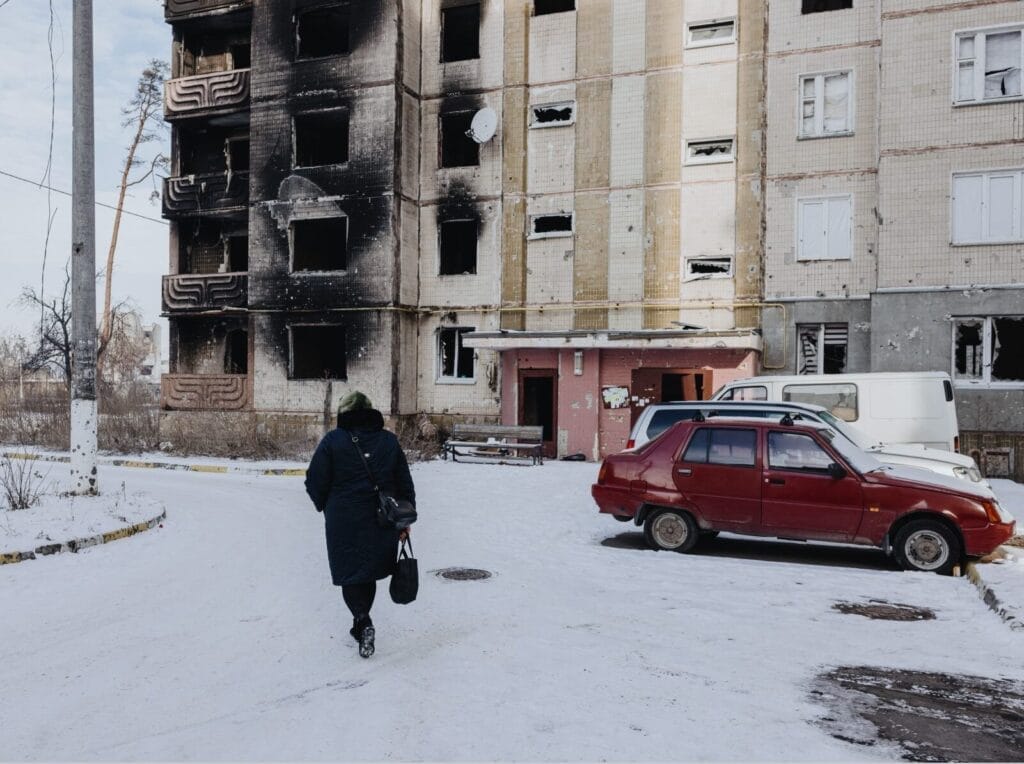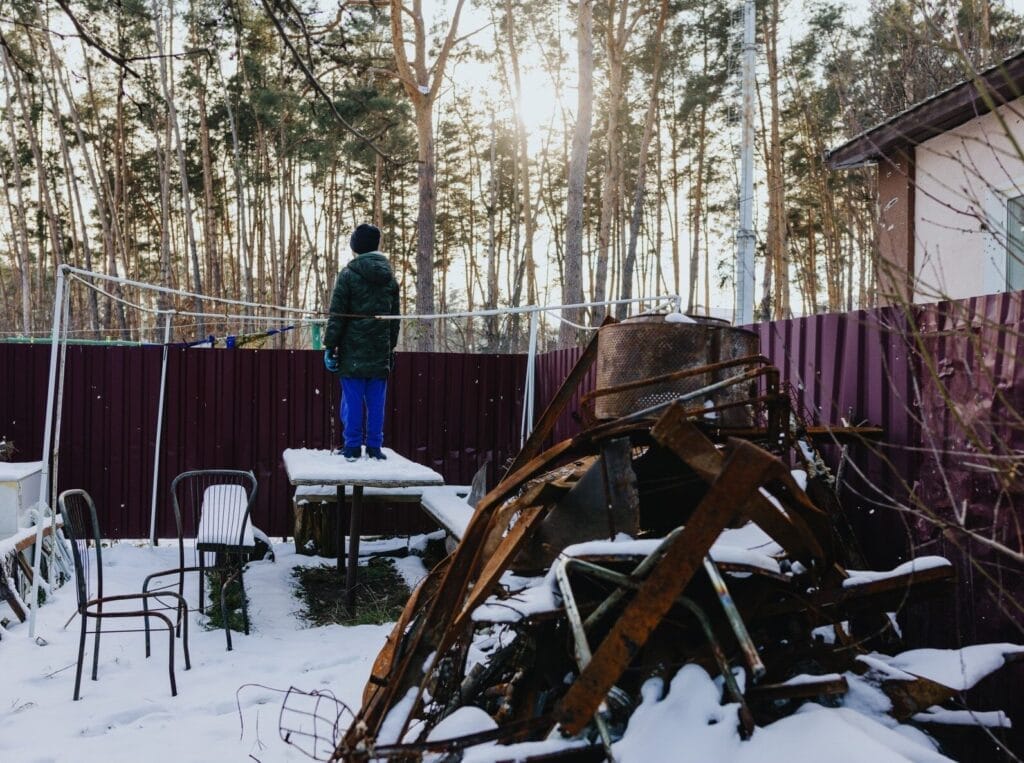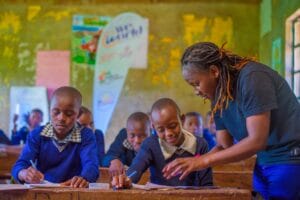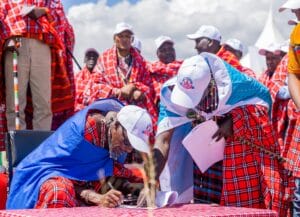
More than 630 days after the beginning of the war, while some glimpses of stability have emerged for short periods in some pockets of the country, the situation in Ukraine remains extremely difficult, especially in the Southern and Eastern regions along the frontline.
On November 13th, another indiscriminate attack targeted the city of Kherson, in the South. In the afternoon, shelling hit the city centre, destroying houses and a hospital. This is the last attack of a long series that relentlessly hit the southern regions of the country and also marks the latest of more than 1,300 attacks targeting healthcare facilities all over the country since the beginning of the invasion. Mere days prior, 150 patients were evacuated from one of the city’s hospitals, due to continuous shelling and the subsequent difficulties in ensuring the energy supply and moving vulnerable patients to the shelters during the alarms. As of today, in many areas of the frontline, less than half of the hospitals are still functional.
In Odesa, attacks have intensified after the termination of the Black Sea Initiative in July, hitting port facilities and grain supplies as well as civil facilities and vessels, as happened at the beginning of November. The situation is having catastrophic consequences not only for the Ukrainian economy but also for the millions of people facing hunger worldwide.
In Eastern regions, attacks continue to be commonplace. In the city of Kharkiv, the second largest in the country, and in the region, many residential and administrative buildings have been damaged by the frequent missile attacks, including hospitals and schools. The situation is even more difficult for the over half a million displaced persons (mostly IDPs coming from NGC areas and evacuated towns along the frontline and returnees) who are currently living in the region. These areas are also heavily mined, due to the high number of explosive ordnances disseminated during fighting and to fortify the frontline. Entire agricultural lands are now completely unusable, but more dangerously the life of adults and children (who, especially in rural areas, are used to play in potentially mined areas) alike is threatened.
The physical impact of shellings is clearly visible in cities and towns across Ukraine. But also the mental impact that attacks had and keep on having on the population is equally visible. Entire communities witnessed the destruction of their homes, the loss of family and friends, and the chronic scarcity of essential goods and services. Schools and kindergartens (almost 4,000 facilities across the whole country, according to HRW, Human Rights Watch) have been severely damaged or destroyed, jeopardizing access to quality education for children and adolescents.
With winter approaching, the situation is destined to deteriorate, as thousands of families will have to face additional difficulties in warming their houses (often damaged and not adequately insulated) and staying protected during the harsh winter months.
In frontline areas as elsewhere, lowering temperatures have been accompanied by an increase in attacks on energy infrastructures. The already damaged energy, water and heating systems will therefore be put under additional stress, potentially leaving millions of people without electricity, gas, and water. Additionally, many have limited or no access to essential winter clothes, due to the impact of war on livelihoods and prices.
WeWorld, together with its local partners, is active in the areas of Kyiv, Kherson, Mykolaiv and Kharkiv to bring humanitarian assistance to the population affected by the conflict. Close to the frontline, WeWorld is supporting the most vulnerable ones by carrying out multisector interventions entailing psychosocial support per adults and children, and awareness raising on the risks coming from unexploded ordnances. In the WASH sector, WeWorld is working on the rehabilitation of infrastructures like water towers, sanitary facilities, water filtration systems, and water supply systems in healthcare and rehabilitation centres. WeWorld is also providing to the most vulnerable groups of the population a financial assistance aimed to support persons and families with protection and health problems. Finally, WeWorld is actively contributing to the winterization response by distributing to the most vulnerable wood and heaters, as well as winter kits comprising jackets, knitwear, scarves, gloves, and blankets.
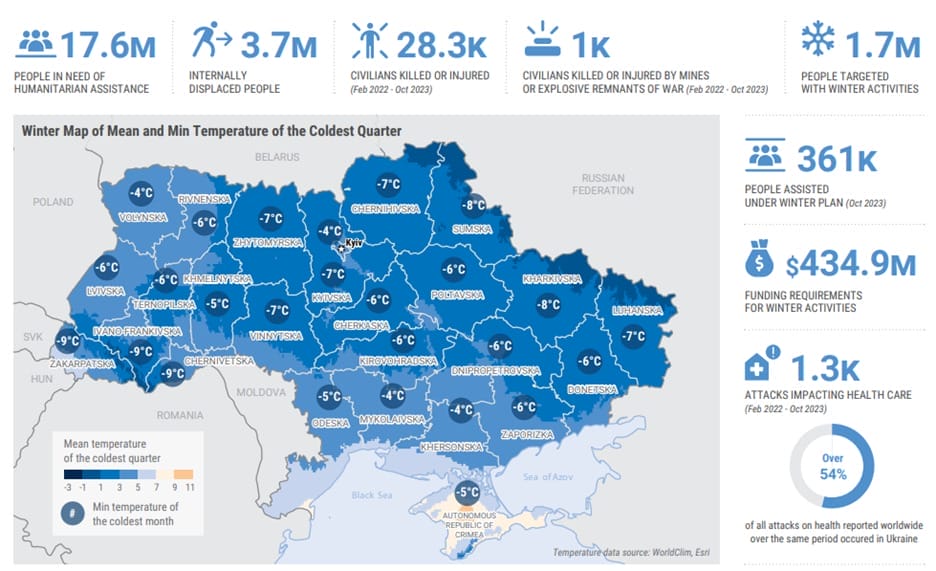
Data source: OCHA, reliefweb.int


